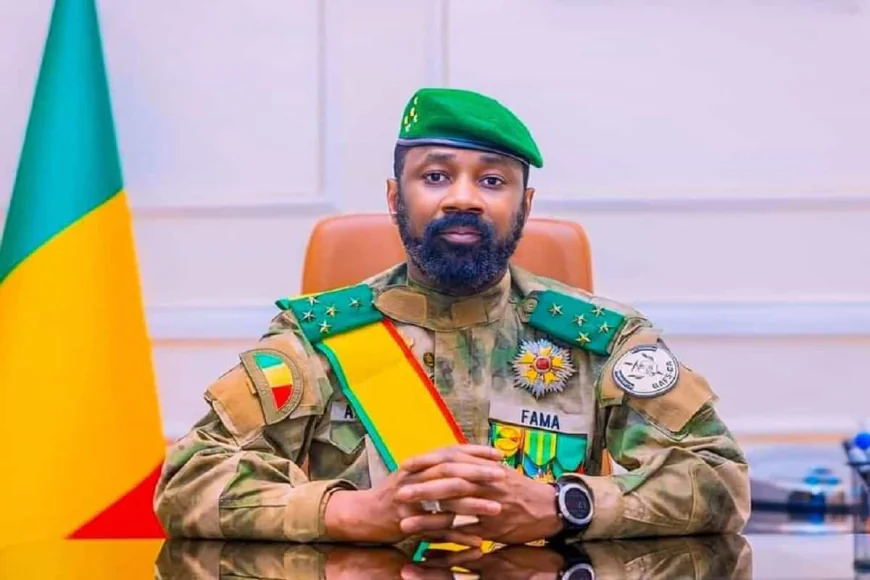Assimi Goïta: Mali’s Military Leader and Interim President
Général d’Armée Assimi Goïta, Mali’s interim president since 2021, rose to power through military coups in 2020 and 2021. Leading the Alliance of Sahel States, he has shifted Mali toward Russia, delayed elections indefinitely, and prioritized military rule amid jihadist insurgencies. His authoritarian governance remains controversial but retains support from factions favoring strong security measures.

Général d’Armée Assimi Goïta (born November 9, 1983) is a Malian military officer who has played a pivotal role in Mali’s recent political upheavals. Since leading two coups in 2020 and 2021, he has served as Mali’s interim president and, more recently, as the first president of the Alliance of Sahel States—a regional security bloc formed with Burkina Faso and Niger. Goïta’s rise to power reflects Mali’s turbulent political landscape, marked by jihadist insurgencies, military takeovers, and strained international relations.
Early Life and Military Career
Born into a military family, Goïta trained at Mali’s elite military institutions, including the Prytanée Militaire de Kati and the Joint Military School in Koulikoro. He specialized in counterterrorism operations, serving as a colonel in the Autonomous Special Forces Battalion (BAFS)—Mali’s elite special forces unit.
Goïta gained experience working with U.S., French, and German military forces, including joint operations with U.S. Army Special Forces. His career was shaped by Mali’s ongoing jihadist insurgency, particularly in central Mali, where he led counterterrorism missions.
Rise to Power: The 2020 and 2021 Coups
2020 Coup: Overthrowing President Keïta
On August 18, 2020, Goïta led the National Committee for the Salvation of the People (CNSP), a military junta that ousted President Ibrahim Boubacar Keïta following mass protests over corruption and insecurity. The coup was widely supported by Malians frustrated with Keïta’s government.
Under pressure from ECOWAS (Economic Community of West African States), Goïta agreed to a transitional government led by civilian interim President Bah Ndaw, with himself as vice president.
2021 Coup: Seizing Full Control
On May 24, 2021, Goïta orchestrated another coup, arresting Ndaw and Prime Minister Moctar Ouane. He accused them of undermining Mali’s transition to democracy by excluding him from key decisions, including a cabinet reshuffle.
On May 28, 2021, Mali’s constitutional court declared Goïta interim president, a position he has held since. He appointed Choguel Kokalla Maïga as prime minister, solidifying his control over the transitional government.
Goïta’s Leadership and Policies
Security and Counterterrorism
Goïta has prioritized military solutions to Mali’s jihadist insurgency, partnering with Russia’s Wagner Group after expelling French forces in 2022. His government has faced criticism for human rights abuses but maintains that foreign intervention is necessary to stabilize Mali.
Political Transition and Delayed Elections
Despite initial promises of a democratic transition, Goïta has repeatedly postponed elections, citing security concerns. In 2024, he indefinitely delayed the vote, drawing condemnation from ECOWAS and Western nations.
Alliance of Sahel States
In July 2024, Goïta became the first president of the Alliance of Sahel States (AES), a mutual defense pact with Burkina Faso and Niger. The bloc aims to counter ECOWAS influence and strengthen military cooperation among the three junta-led nations.
International Relations
Goïta has shifted Mali’s alliances away from France and the West, deepening ties with Russia. He has met with Vladimir Putin multiple times, securing military and economic support. In 2023, he accused Western sanctions of being "neocolonialist" during a speech in Russia.
Mali under Goïta has also supported Niger’s military junta following the 2023 Nigerien coup, allowing Malian troops to operate in Niger.
Personal Life and Public Image
Goïta is married to Lala Diallo and maintains a low-key personal life. Despite his authoritarian rule, he remains popular among some Malians who see him as a strong leader against jihadist threats.
An annual football tournament, the Colonel Assimi Goïta Super Cup, is named in his honor, reflecting his influence in Malian society.
Conclusion
Assimi Goïta’s leadership has reshaped Mali’s political and security landscape. While he has stabilized some aspects of governance, his refusal to hold elections and reliance on military rule have drawn criticism. As head of the Alliance of Sahel States, Goïta is positioning Mali as a key player in regional security, but his long-term impact remains uncertain.















































